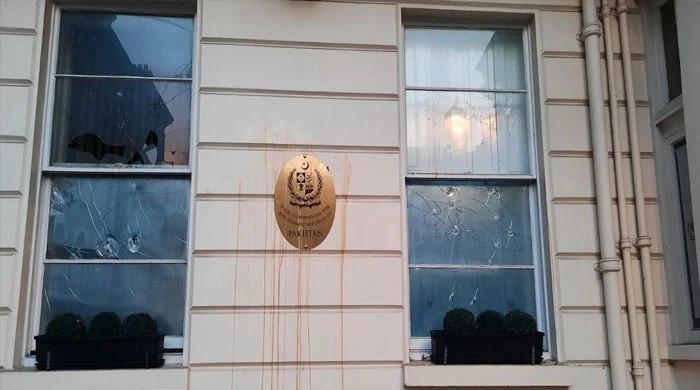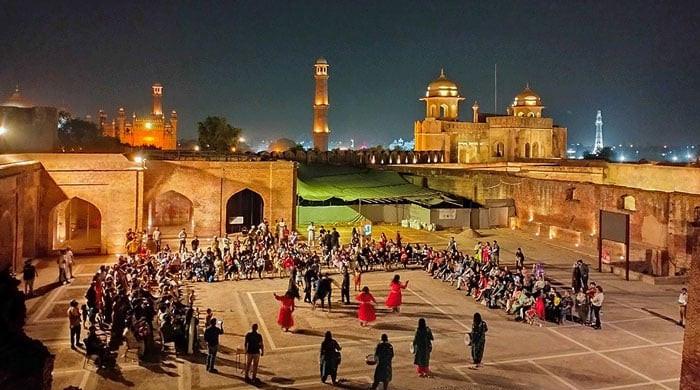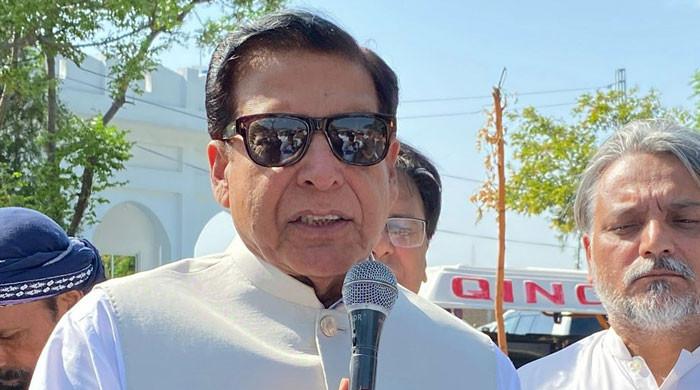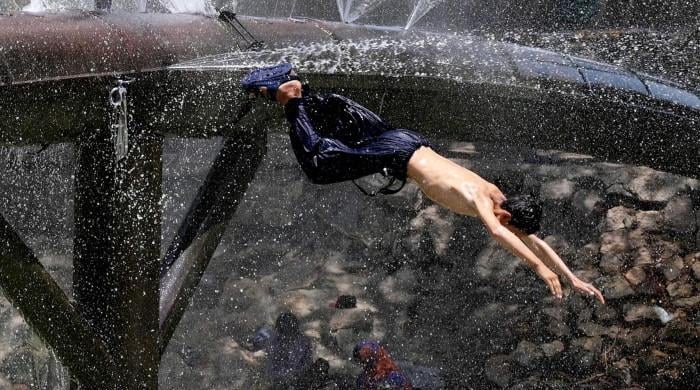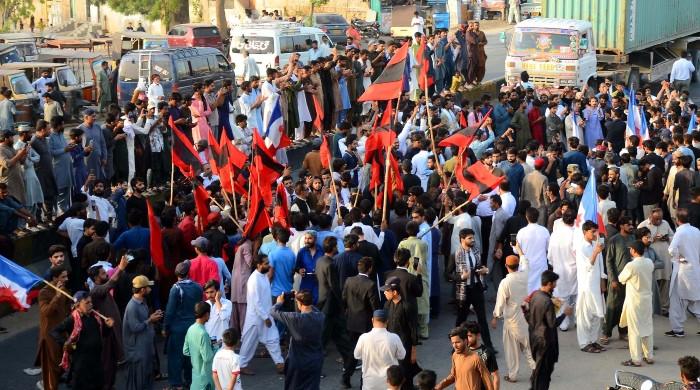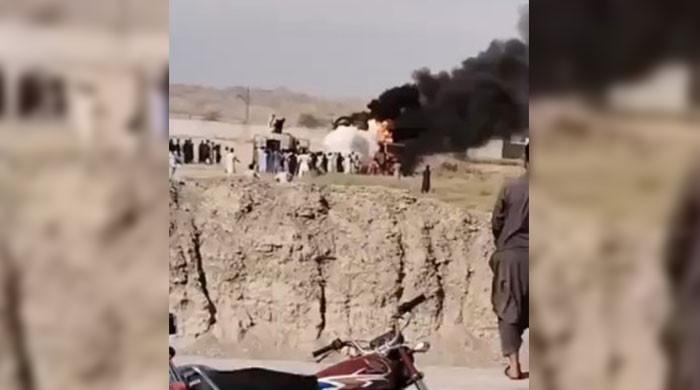Govt ready to offer ECP 'technological support' for Senate elections after SC verdict
A delegation of ministers meets CEC and other ECP members to discuss SC verdict on Senate elections
March 01, 2021
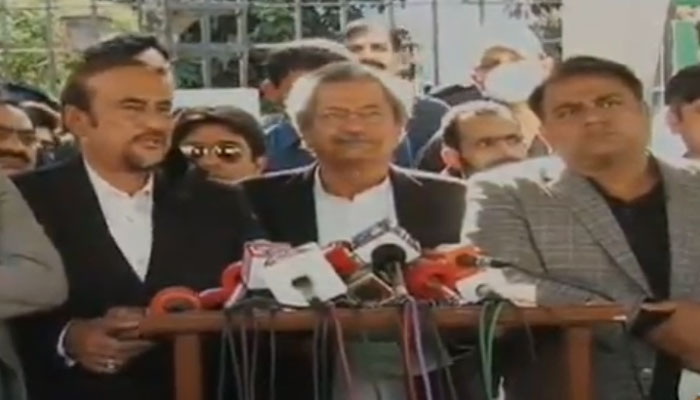
- Delegation of ministers assures ECP of government support.
- Babar Awan claims SC has allowed ECP to remove secrecy in Senate elections “according to the situation”.
- Govt delegation met ECP after SC verdict on presidential reference on Senate elections.
The government on Monday offered the Election Commission of Pakistan (ECP) "technological support" to carry out voting in the Senate elections in view of the Supreme Court verdict on the presidential reference.
The offer was made by a government delegation, comprising federal ministers who met the Chief Election Commissioner Sikandar Sultan Raja and other members of the ECP. The delegation included federal ministers Fawad Chaudhry, Shafqat Mahmood, advisers to PM Shahzad Akbar and Babar Awan.
“[We told the ECP that] whatever technology [you need] we have it,” said Federal Minister for Science and Technology after the meeting. He added that if the ECP uses the offered technology, then ballot papers will be printed “within two hours”
"If we can print currency [within record time] then we can also print 1,500 ballot papers," said Fawad Chaudhry.
He added that the Supreme Court, in its verdict, maintained that votes will be identifiable for the ECP but they will remain "secretive" for the political parties. He added that this was recommended by the apex court so the ECP could investigate allegations of horse trading.
The minister said that the delegation, that met the ECP office bearers, trusts the institute, adding that all institutions are liable to cooperate with the ECP as per the Constitution.
On the other hand, Prime Minister Imran Khan's aide Babar Awan claimed that the Supreme Court has allowed the ECP to remove secrecy in the senate elections “according to the situation”. He added that the ECP can decide after seeing the "ground realities".
Meanwhile, education minister Shafqat Mahmood said that his party sees the Supreme Court's decision in its favour, adding that the ministers had discussed the apex court’s decision in today’s meeting.
Senate polls to be held through secret ballot, but secrecy not absolute: SC
Earlier today, the Supreme Court held, with a 4-1 majority, that polling for Senate elections is held "under the Constitution" and thus cannot be done through an open ballot.
However, the court also held that the secrecy of the ballot is not "absolute" and can be diluted by practical considerations, especially those that relate to the Election Commission of Pakistan (ECP) exercising its mandate to conduct free-and-fair elections that are devoid of any corrupt practices.
The apex court said that it is up to the ECP to decide to which extent the voting should remain secret.
A five-member larger bench of the apex court — headed by Chief Justice of Pakistan Gulzar Ahmed and comprising Justices Mushir Alam, Umar Ata Bandial, Ijazul Ahsan and Yahya Afridi — announced the reserved opinion in Courtroom No 1 of the Supreme Court.
The presidential reference
The reference, filed by the government in the Supreme Court, had said that the president has sought the apex court's opinion on whether the condition of holding elections via secret ballot referred to in Article 226 of the Constitution is applicable only for elections held under the Constitution — such as the election to the office of president, speakers and deputy speakers of the Parliament and provincial assemblies — and "not to other elections, such as the election for the members of Senate" held under the Elections Act 2017 enacted to pursuant to Article 222 read with Entry 41 (1) of the Fourth Schedule to the Constitution "which may be held by way of secret or open ballot" as provided for in the Act.
According to the government, the nature of the elections and the way it is conducted had not been clearly mentioned in the Constitution.




